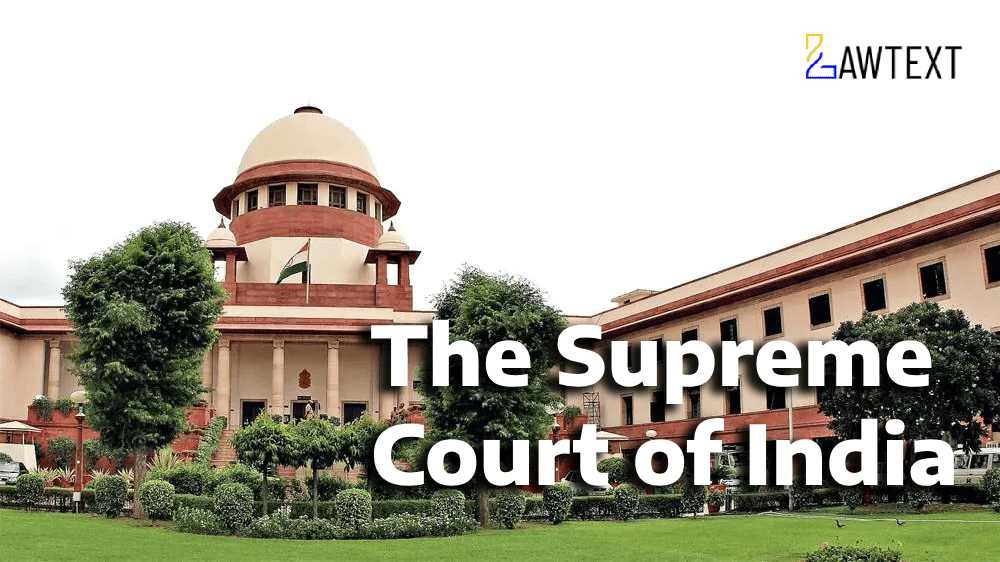CASE NOTE & SUMMARY
Acts Discussed:
- Constitution of India, 1950
- Article 14 – Equality before the law
- Article 19 – Right to freedom
- Article 21 – Right to life and personal liberty
- Criminal Procedure Code (CrPC), 1973
- Section 482 – Inherent powers of the High Court
- Supreme Court Rules, 2013
- Rule 6 of Order LV – Inherent powers of the Court
Sections Discussed:
- Section 482 CrPC – Guidelines to quash FIRs and prevent abuse of process by scuttling investigation into cognizable offences.
- Article 32 – Writ petitions for the protection of fundamental rights.
Ratio Decidendi:
The Supreme Court upheld the principle that no adverse order should be passed without hearing the affected parties, underscoring the fundamental rule of natural justice. It reaffirmed that a party cannot reopen a final order without specific and exceptional grounds, but acknowledged that procedural errors leading to injustice may justify revisiting disposed cases.
Seeking protection against criminal FIRs initiated by defaulting borrowers. The Supreme Court initially stayed proceedings but later clarified the order, allowing High Courts to handle the cases independently. The Court addressed procedural lapses, particularly the lack of a hearing for the Enforcement Directorate, and made necessary corrections to its prior judgment.
- The petition was filed to prevent disgruntled borrowers from using criminal proceedings to harass financial institutions.
- The Court initially stayed all FIRs in different states but modified this after procedural oversights were identified.
- The Enforcement Directorate, which was not heard in the original proceedings, successfully sought recall of the order related to its involvement.
- The Court allowed the High Courts to adjudicate on the merits of the FIRs without influence from the prior Supreme Court order.
Para 1-2:
Facts & Prayers of the Writ Petition
- The petitioners sought a writ of mandamus to prevent criminal proceedings initiated by defaulting borrowers and quashing FIRs in three states: West Bengal, Uttar Pradesh, and Delhi.
- They requested guidelines to prevent abuse of process against financial institutions.
Para 3:
Interim Stay Order (28.04.2023)
- The Supreme Court stayed the FIRs across three states, halting all proceedings related to them.
Para 4-6:
Additional Interlocutory Applications (IAs) Filed on 03.07.2023
- Petitioners sought to implead the Yamuna Industrial Development Authority (YIDA) and the Enforcement Directorate after new FIRs were registered.
- The Court allowed these applications and directed petitioners to approach jurisdictional High Courts to challenge the FIRs.
Para 7-9:
Filing of Miscellaneous and Interlocutory Applications
- Miscellaneous applications were filed seeking modification/recall of the order.
- Respondents, including Amit Walia and the Enforcement Directorate, contested that they were not heard before the 04.07.2023 order.
Para 10-12:
Principle of Finality in Judgments
- The Court discussed settled law on finality of judgments, referring to cases like Jaipur Vidyut Vitran Nigam Ltd. v. Adani Power Rajasthan Ltd. and Supertech Ltd. v. Emerald Court Owner Resident Welfare Association.
- The Court reaffirmed that post-disposal applications for modification should be rare but invoked Rule 6 of Order LV for preventing injustice.
Para 13-15:
Hearing the Enforcement Directorate
- The Court emphasized that the Enforcement Directorate had not been heard before its impleadment, thereby violating the principles of natural justice.
- The order affecting the Enforcement Directorate was recalled.
Para 16-17:
Errors in the Previous Order
- Oversight was found in directing that no coercive steps should be taken while still allowing proceedings to continue. The Court clarified that the protection should remain until the petitions were filed, not until final disposal.
Para 18:
Final Directions and Conclusion
- The order was modified, recalling the stay concerning the ECIR registered by the Enforcement Directorate.
- The High Courts were granted full liberty to adjudicate on the merits of the FIRs and associated proceedings without being influenced by the earlier Supreme Court order.
Subjects:
- Subject: Protection of financial institutions from abuse of criminal law by defaulting borrowers. Financial Institutions, Writ Petition, FIR Quashing, Criminal Law, Enforcement Directorate, Natural Justice, Article 32, Article 14, Article 19, Article 21, Procedural Oversight.
Citation: 2024 LawText (SC) (9) 233
Case Number: Misc. Application No. 1861 of 2023 with Interlocutory Application No. 138072 of 2023 & Misc. Application No. 1862 of 2023 with Interlocutory Application No. 150965 of 2023 in WRIT PETITION (CRL.) No. 166 OF 2023
Date of Decision: 2024-09-23
Case Title: Gagan Banga and another Versus The State of West Bengal and others
Before Judge: (SANJAY KUMAR J. , ARAVIND KUMAR J. )
Appellant: Gagan Banga and another
Respondent: The State of West Bengal and others

